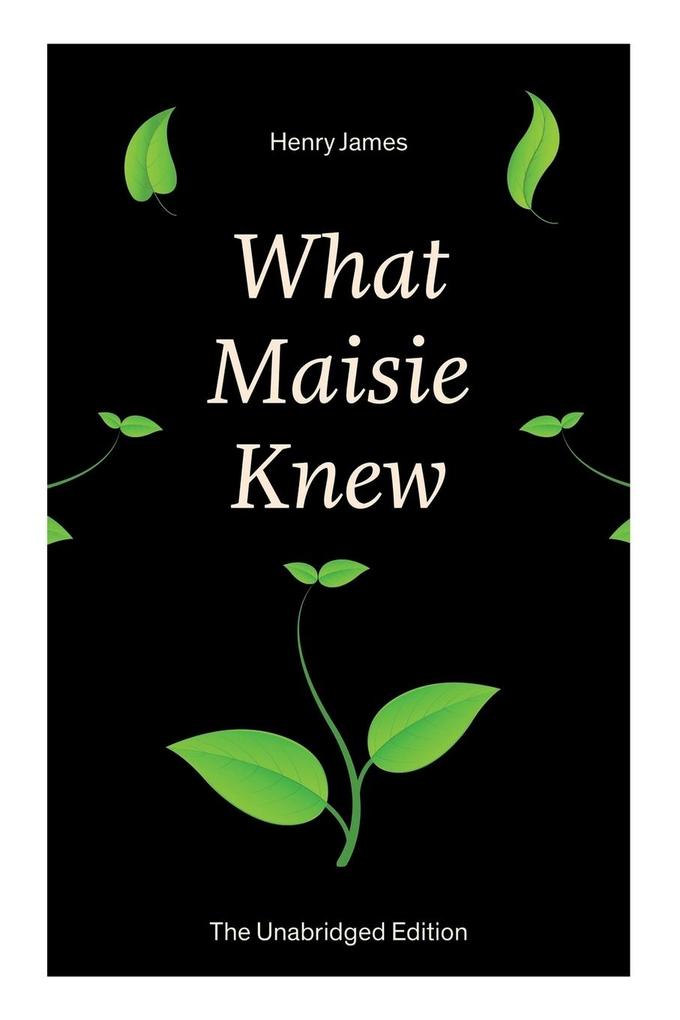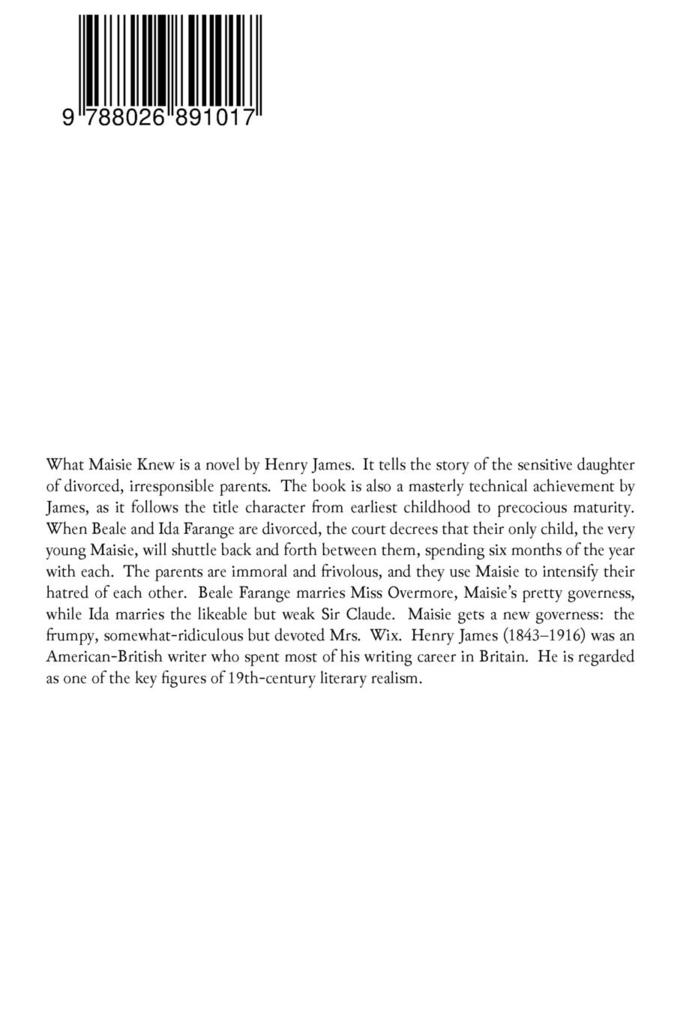
Zustellung: Do, 26.06. - Di, 01.07.
Versand in 2 Wochen
VersandkostenfreiBestellen & in Filiale abholen:
In 'What Maisie Knew, ' Henry James crafts a poignant narrative exploring the fragmented reality of childhood through the eyes of prepubescent Maisie Farange. The novel employs a stream-of-consciousness style, deftly capturing the complexities of perception and emotional disillusionment as Maisie navigates the turbulent waters of her parents' divorce. Rich in psychological depth, the text reflects contemporary themes of social decay and the intricacies of adult relationships, situating Maisie's experiences against the backdrop of late 19th-century British society's moral ambiguities and shifting social landscapes. Henry James, a pivotal figure in literary modernism, often drew from his own transcontinental upbringing and keen observations of human behavior, providing him with a unique perspective on the intricacies of interpersonal dynamics. 'What Maisie Knew' stands as a testament to his fascination with innocence lost, as well as the bewildering complexities of adult life that encroach on the purity of childhood. His literary career, marked by a profound exploration of psychological realism and moral complexity, strongly influences the narrative voice in this particular work. This unabridged edition is recommended for readers seeking an introspective journey through the nuances of perception and the ramifications of adult decisions on innocents. James' masterful prose not only invites deep contemplation but also aligns seamlessly with current themes in psychology and sociology, making the novel a critical read for anyone interested in understanding the lasting impact of familial relationships on the formation of identity.
Produktdetails
Erscheinungsdatum
13. Dezember 2018
Sprache
englisch
Seitenanzahl
152
Autor/Autorin
Henry James
Verlag/Hersteller
Produktart
kartoniert
Gewicht
222 g
Größe (L/B/H)
226/145/11 mm
ISBN
9788026891017
Bewertungen
0 Bewertungen
Es wurden noch keine Bewertungen abgegeben. Schreiben Sie die erste Bewertung zu "What Maisie Knew (the Unabridged Edition)" und helfen Sie damit anderen bei der Kaufentscheidung.










